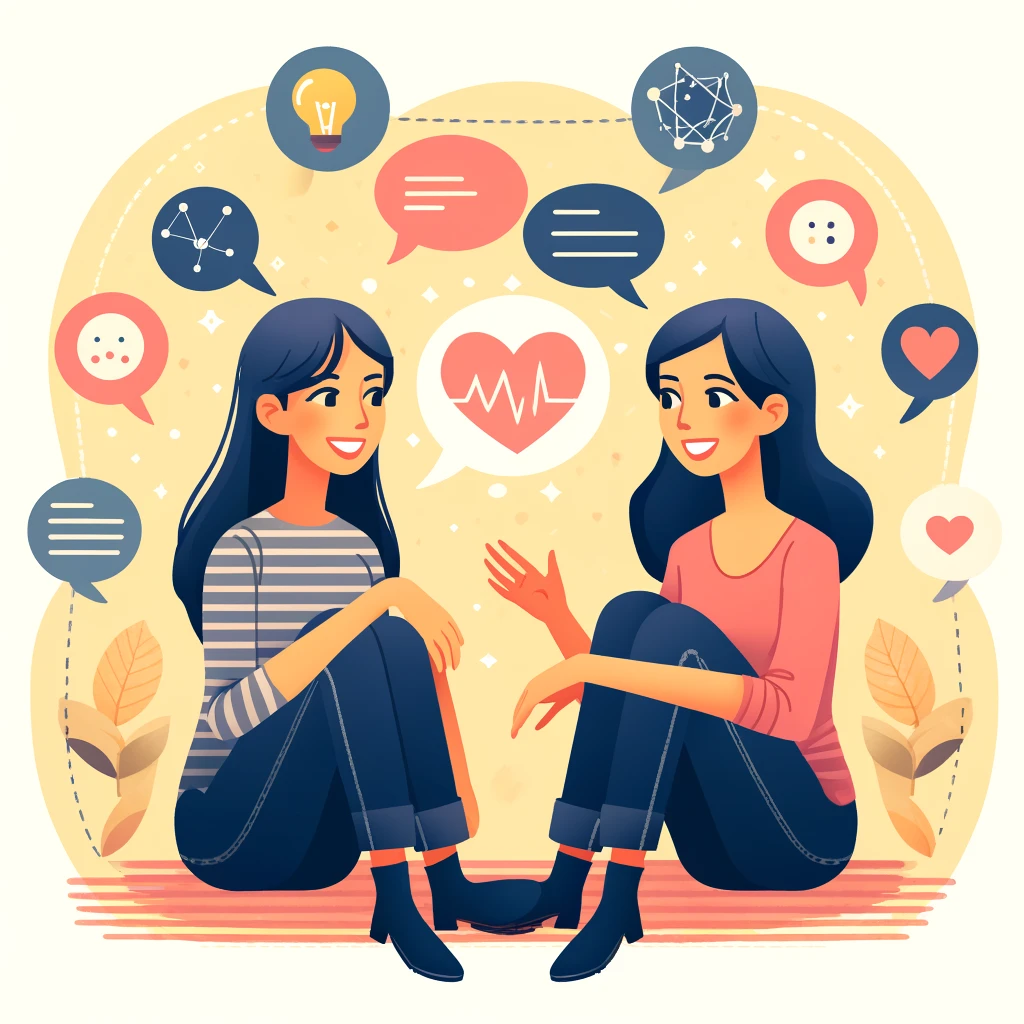ADHD Burnout and College: A University Survival Guide
University is full of exciting opportunities—but for ADHD students, it often feels like juggling a hundred things at once while the world shouts at you to "just try harder." If you’re reading this because you’re exhausted, overwhelmed, and wondering why rest doesn’t help anymore, know this: it’s not your fault. ADHD burnout and college challenges are real and deeply impactful. But with a little gentleness, a lot of self-accommodation, and tools that work for your brain, you can recover and rediscover what thriving looks like for you.
Understanding ADHD Burnout at College

ADHD burnout goes far beyond being “tired.” It’s when physical, emotional, and mental exhaustion collide, leaving you stuck in a cycle of overwhelm and depletion. It happens when your brain is asked to keep up with a system not designed for you—where expectations and structures ignore the way ADHD brains work. Rest doesn’t seem to help because the demands and pressures don’t change.
ADHD burnout can look like:
- Chronic exhaustion that no amount of sleep fixes.
- Increased irritability or hypersensitivity to sensory input (e.g., noise, light, crowded spaces).
- Struggling to complete tasks, even ones you normally enjoy.
- Emotional overwhelm, anxiety, or shutting down altogether.
Reflection Prompt: How does burnout show up for me? What’s one thing I can do to make space for rest without judgment?
Why ADHD Burnout is Common in College
The university environment often operates in ways that amplify the challenges of ADHD. Tight deadlines, unstructured schedules, and the pressure to self-manage everything create a perfect storm for burnout. ADHD burnout in college is further exacerbated by the pressure to mask ADHD traits, which can be mentally and emotionally exhausting.
The Cost of Masking ADHD in College
Masking might look like:
- Suppressing fidgeting or hyperactivity in lectures.
- Overcompensating to hide disorganization or forgetfulness.
- Ignoring sensory overwhelm to “push through” tasks.
While masking can help you meet short-term expectations, it drains your emotional and mental energy. You weren’t meant to live like this.
How can you Unmask: Masking is something we often learn out of necessity—but it’s okay to start unmasking in safe spaces. Where can you let yourself be a little more you today?
How to Recover from ADHD Burnout in College
Burnout recovery starts with one simple but radical idea: you don’t have to earn rest. Your value isn’t tied to productivity, and your worth isn’t up for debate. When you stop fighting yourself and start leaning into what works for your ADHD brain, healing becomes possible. The earlier you learn this as an ADHD person the healthier your life will be.
1. Practice Self-Accommodation
Self-accommodation means adapting the world around you to meet your needs instead of forcing yourself to fit neurotypical systems. Think of it as giving yourself permission to do things your way.
- Create ADHD-Friendly Routines: Routines aren’t about rigidity; they’re about reducing decision fatigue. Build flexible structures, like prepping study materials the night before or setting timers to start tasks.
- Work in Small Bursts: Long tasks can feel impossible. Break them into chunks with built-in breaks. Remember, “progress” isn’t about finishing it all at once—it’s about starting.
- Make Your Space Work for You: Need quiet? Use noise-canceling headphones. Need stimulation? Add music or work in a bustling café. Adjust lighting, seating, or even scents to help regulate your focus.
Personal Example: One student I worked with found it helpful to create a “comfort corner” in their dorm with a weighted blanket, a soft lamp, and their favorite sensory items for studying. Another adjusted their routine by scheduling study sessions during their natural peak focus hours late at night and took only afternoon classes.
2. Prioritize Self-Care
Self-care isn’t selfish—it’s survival. And for ADHD brains, it’s less about bubble baths and more about practical acts of kindness for yourself.
- Rest Without Guilt: Rest isn’t earned—it’s necessary. Watch a comfort show, take a nap, or spend time outside, guilt-free.
- Eat and Hydrate Regularly: ADHD brains often struggle with interoception (noticing hunger or thirst). Set reminders to drink water or keep easy snacks nearby.
- Address Sensory Overload: Reduce stimulation when needed, whether that’s stepping outside for fresh air, dimming lights, or carrying a sensory tool like a fidget item.
- Learn about energy management and energy cycles
- Keep track of your hormonal cycles
Gentle Reminder: When you care for your body, you’re also caring for your brain. You’re not lazy for needing breaks—you’re human.
3. Cultivate Self-Compassion
Self-compassion is the antidote to the shame and guilt that often come with ADHD burnout. It’s about treating yourself with the same kindness you’d offer a friend.
- Acknowledge Your Efforts: Even if the results aren’t perfect, your effort matters. Celebrate the small wins, like showing up for class or opening a textbook.
- Speak Kindly to Yourself: Replace “Why can’t I just get it together?” with “I’m doing the best I can with the tools I have.”
- Let Go of Perfectionism: Remember, you don’t have to do everything perfectly to succeed. Good enough is enough.
Reflection Prompt: How can I show myself kindness today? What’s one thing I can forgive myself for?
Navigating Stigma in College
Stigma around ADHD often leads to feelings of shame or the sense that accommodations are “cheating.” This couldn’t be further from the truth.
- Challenge Internalized Stigma: Remind yourself: accommodations aren’t about giving you an “edge”—they’re about making things accessible for you.
- Educate Others: When you feel safe, share simple facts about ADHD. For example, “It’s not about intelligence; it’s about executive function, my sensory system, and my experience of the world which is different. It impacts how I plan, prioritize, and organize.”
- Find Community: Connecting with peers who share your experiences can be profoundly validating. ADHD support groups or neurodivergent meetups can help you feel less alone.
Rebuilding: Tools for Long-Term Resilience
1. Learn to Spot Early Signs of Burnout
Burnout doesn’t happen overnight, and learning to recognize it early can help you adjust before it takes hold.
- Weekly Check-Ins: Ask yourself questions like: “What’s draining me this week? What’s giving me energy? What small change can I make to feel more balanced?”
- Adjust Workload: If your schedule feels overwhelming, prioritize and cut back where possible. It’s okay to say no.
2. Embrace Safe, Unmasked Spaces
- Find Your People: Seek out ADHD or neurodivergent support groups where you can be yourself without judgment.
- Advocate for Accommodations: Use university disability services to access tools like extended deadlines, note-takers, or quieter testing spaces. Remember, accommodations are a right—not a favor.
3. Use Neurodivergent-Friendly Strategies for School Success
- Work With, Not Against, Your Brain: If mornings are hard, schedule your toughest tasks later. If you hyperfocus, build in reminders to take breaks.
- Make Deadlines Manageable: Ask for staggered due dates or break large projects into smaller milestones to avoid overwhelm.
- Utilize Body Doubling: Studying alongside someone else can provide accountability and reduce distractions.
You Deserve to Thrive
ADHD Burnout in college isn’t a failure—it’s a sign that your environment needs to change, not you. By embracing self-accommodation, prioritizing self-care, and cultivating compassion, you can start to heal and build a life that works for you.
University isn’t just about academics—it’s about discovering what you need to feel balanced, supported, and empowered as an ADHD individual. You are not alone in this journey, and you don’t have to do it all perfectly. Progress, not perfection, is what matters most.
Reflection Prompt: What’s one thing I can do right now to show myself care and compassion?
Quick Summary & Resources
Key Takeaways:
- Self-accommodation is essential—adjust your routines and environment to fit your needs.
- Self-care isn’t indulgent—it’s survival. Rest, hydrate, and nurture yourself without guilt.
- Self-compassion heals. Celebrate small wins and let go of perfectionism.
Helpful Tools & Links:
- Focusmate for accountability during tasks.
- ADHD Alien for relatable ADHD insights.
- University Disability Services for accommodations and support.
References
Doyle, A., Healy, O., Paterson, J., Lewis, K., & Treanor, D. (2024). What does an ADHD-friendly university look like? A case study from Ireland. International Journal of Educational Research Open, 7, 100345. https://doi.org/10.1016/j.ijedro.2024.100345


